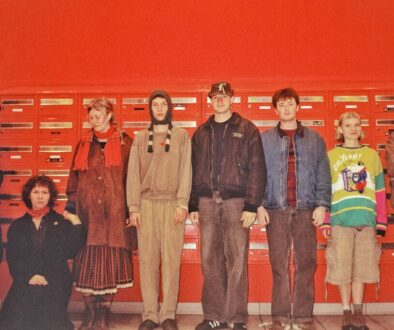Similar artists, influences and how to utilise them
What does your music really sound like?
When hearing new music people can be quick to draw comparisons to existing artists and that can be a little demoralizing. Of course, you may think your music sounds unique or different from other tracks but people use similarities as a stepping-stone to understand what they’re listening to. And this can be to your benefit.
If you repeatedly get comparisons thrown about regarding artists you love then that’s fantastic. Mention you have a similar sound in your bios and anywhere you can. That’ll raise the likelihood of potential fans clicking on your music. On those lines, also consider choosing more popular artists to mention; so if there are two, and one has a bigger fan-base, it makes more sense to appeal to more potential fans with the bigger established name.
Be realistic: an artist you love isn’t by default what you sound like
It’s always interesting to hear what an artist likes to listen to, but if you’re just starting out don’t compare yourself to music that doesn’t reflect your own. That will only confuse potential listeners.
Of course in reality, musical influences are never that clear cut. Most of us love a huge variety of music genres that span way beyond our own musical outputs. This can subtly (or massively) influence our writing and/or production style but may not be clear by the end product. For example, country/rock singer songwriter Ryan Adams loves heavy metal and punk and has even released a studio album, Orion, and a 11 track EP, 1984, as proof. But when starting out, influences and comparisons need to be well thought out. If Ryan Adams were a newcomer, he’d need to link sensibly to similar artists.
What inspires you?
But other music isn’t just for helping potential fans find their feet. Music will inspire and change the way you think about your own music creation. It’s always interesting to hear what artists are listening to and this can be a great way of discovering new music. Interviews on YouTube can be a great way to find these kind of treasures (and also a dangerous procrastination tool so beware!) Personally I found the classic Getz/Gilberto jazz album via a Ray Lamontagne AMA (Ask Me Anything) thread on Reddit and that’s certainly broadened my horizons.
One of my favourite bands, Austra, is led by Katie Stelmanis, who has a classical and operatic background. Austra is a synth-pop band and when she mentions influences it’s fascinating that in the pop driven world interviewers rarely comprehend whom she’s talking about. She uses those specific music idols to help create layered compositions that are (in my opinion) incredibly complex and different to most other electronic bands out there. But going back to what we’ve said before, to label Austra as being like composers such as Bach or Puccinni in anyway would be deceiving, confusing and detrimental to Austra’s current aims. And importantly they don’t do it.
Don’t fight your own style
The best advice I’ve ever heard is, “make music that comes naturally to you.” That’s not to say don’t work hard to adapt and progress your sound. It means make the music that flows from you. There’s no point writing music that blatantly copies someone else’s style if you can’t progress it yourself. This might mean your favourite music genre isn’t necessarily the one you’ll write for. Ryan Adams suffers from this; he’s repeatedly said he hates country music and never listens to it but 14 solo albums in, it’s hard to argue that it doesn’t naturally flow.
Where to go from here?
Think carefully about the music you’d like linked. Get others outside of your inner music bubble to listen and share their thoughts. In the end you want to use artists that are a fair comparison, not a farfetched one. That way links will be a more effective pulling power to keep potential fans once they’ve actually listened to your own music.
It’s also important to acknowledge that influences shouldn’t define you, but they can make you stronger. Keep plugging at it and utilize similar established artists to your own benefit.



